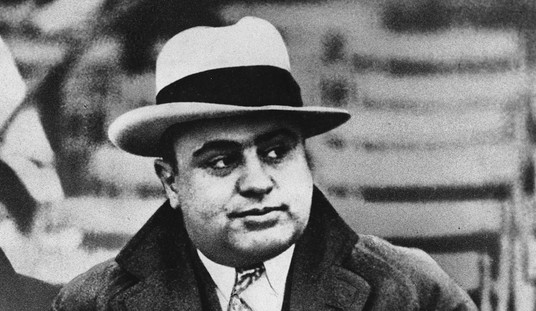Er, no, they shouldn’t have, although of course Obama’s answer was the smart one politically. For starters, soccer was, is, and always will be a lost cause here. FIFA’s better off stirring up interest in the Muslim world, where they might get some marginal return in fan attention, instead of wasting another tourney on our market. Beyond that, it’ll be high-larious watching soccer fanatics try to cope with 110 degree heat and shari’a law that makes alcohol scarce and shorts and t-shirts “inappropriate” attire — even for men. (Russia, which was awarded the 2018 Cup today, promises pretty much the opposite problems.) That’s assuming, of course, that Qatar still has those regulations in place by 2022. The great hope, as is always the case when a repressive regime hosts a major sports event, is that the promise of tourism revenue and global media attention will lead them to liberalize. Tunku Varadarajan wishes upon a star:
Most significantly, this is the first time that the world has entrusted a global event to a Muslim, Arab country, and it was moving to see Qatar’s charming young crown prince choke up with emotion as he gave his thanks for the vote of confidence. There can hardly have been an onlooker who would not have wanted to go up to the young man and shake his hand.
I believe that the Qatar World Cup will be a most effective weapon against al Qaeda and the forces of Islamist darkness. Arab society has seen the world embrace it in a truly global enterprise, and will, I believe, rise to the challenge—a challenge that includes not merely effective organization, but a transformation of traditional ways into cosmopolitan ones. Qatar will play host to tens of thousands of fans from around the world—men and women who will expect to sit together, women who will expect total equality and the right to dress as they please, fans who will want—and not expect to be denied—a drink…Fans who will have no truck with religious police, modesty police, or killjoys of any kind. And if Israel qualifies, Qatar will not be able to deny it the right to play, for the first time, on Arab soil. Think of that.
All this could be electrifying and transformative—the 2022 World Cup could, without exaggeration, bring about a cultural revolution.
Could be, although China’s a culture in need of a little revolutionizin’ too and the Beijing Olympics haven’t seemed to make much of a dent. There’s also a question, as there was with the South Africa Cup, of whether spending billions on soccer is the best investment a third-world country can make. Probably not an issue in this particular case, though: Thanks to black gold, Qatar boasts the second highest per capita income of any nation on earth and is promising to spend upwards of $50 billion(!) on infrastructure if need be to make things run smoothly. They’re also vowing to share the wealth with poorer countries — sort of:
Central to their bid was a revolutionary cooling system that would use solar power to provide zero-carbon air conditioning to cool the stadiums, technology that has the potential to transform the lives of tens of millions living near the equator.
And it is the legacy that a Middle Eastern World Cup could bring that has arguably persuaded FIFA to take a risk on Qatar. After the tournament, Qatar has promised to dismantle the modular stadiums and rebuild them in third world countries who can’t afford their own.
We’ll see. For your viewing pleasure below, a recent highlight of the Qatari team in action. Don’t expect the host nation to be hoisting the Cup in 2022, even with 12 years to prepare. Exit question: Is a country with a total population of around a million people really equipped to host an event like this? Said Eric Wynalda, a former U.S. team player, “a successful World Cup would mean the attendance would be twice the population.”








Join the conversation as a VIP Member